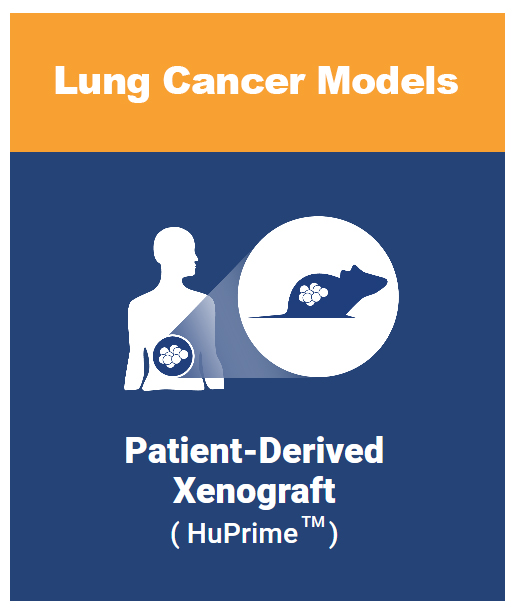

Lung cancer is the most common type of cancer worldwide, accounting for 13% of the total number of new diagnoses and is classified according to histological type by the size and appearance of cells: non-small cell lung cancer (NSCLC) and small cell lung cancer (SCLC). Given the prominence of lung cancer diagnosed in the population, predictive preclinical models are essential for treatment development. Patient-derived xenograft (PDX) models are known to be the most predictive preclinical model and provide the most accurate approach to evaluating an agents efficacy prior to entering the clinic. CrownBio offers a large collection of over 300 well characterized lung cancer PDX models including 70 SCLC models, as well as primary and metastatic models.

Our Lung cancer Patient-derived xenograft models offer the most translational preclinical model for efficacy screening in cancer drug development. Derived directly from patient tumors and never adapted to grow in vitro, Patient derived xenograft reflects the heterogeneity and diversity of the human patient population. A Lung cancer (PDX) model will give you an accurate, predictive model of how your treatment will perform, well before entering into expensive clinical trials. CrownBio’s HuPrime® Lung cancer PDX models are well characterized for pathology, growth characteristics, and are also genetically/genomically annotated for gene expression, gene copy number, mutations, and fusions.
Learn More at: https://models.crownbio.com/model/pdx/lung-cancer